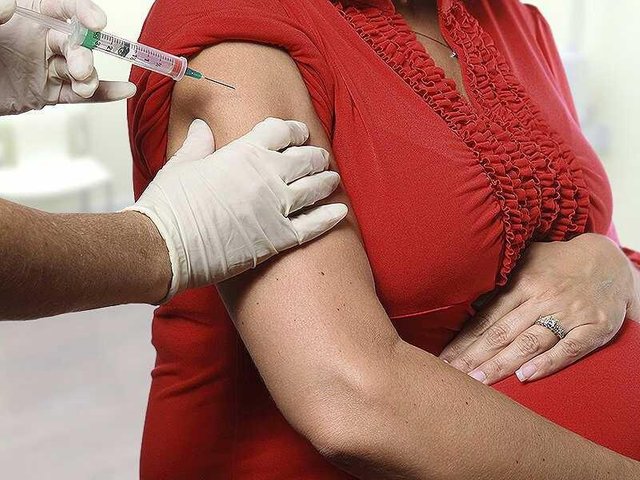Medscape Medical News Headlines
 Influenza, Tdap Vaccination in Pregnancy: Safe for Infants
Influenza, Tdap Vaccination in Pregnancy: Safe for Infants
Medscape Medical News Headlines
Maternal influenza and tetanus toxoid, reduced diphtheria toxoid, acellular pertussis (Tdap) vaccinations during pregnancy do not increase the risk for hospitalization or death among infants from birth to 6 months, a new study showed. The data add to a growing body of evidence on the safety of vaccination during pregnancy.
Lakshmi Sukumaran, MD, MPH, from the Centers for Disease Control and Prevention in Atlanta, Georgia, and colleagues reported their findings online February 20 in Pediatrics.
"In our study of maternal influenza and Tdap vaccines, we found no increased risk of infant all-cause hospitalizations, hospitalizations from respiratory causes, or all-cause mortality in the first 6 months of life," the authors write.
The Advisory Committee on Immunization Practices recommends that pregnant women receive influenza and Tdap vaccines. Although evidence shows that these vaccines are safe in pregnant women, long-term data on infants born to mothers vaccinated during pregnancy have been lacking.
Sukumaran and colleagues therefore conducted a case-controlled study to evaluate vaccine-related health risks. They used data from the Vaccine Safety Datalink, including singleton infants born live between 2004 and 2014. Infants whose mothers had received one or both vaccines during pregnancy were matched 1:1 with infants whose mothers did not receive either vaccine during pregnancy.
Of the 413,034 infants included the study, 25,222 were hospitalized during the first 6 months of life, and 157 died.
Among the hospitalized infants, 4644 (18.4%) had a respiratory cause for their hospitalization: influenza contributed to 105 (2.2%) of these respiratory hospitalizations, and pertussis to 137 (3%).
A respiratory cause was identified in 14 (9%) of the infants who died, but influenza or pertussis infections were not considered to have been causative.
Overall, the researchers found no association between infant hospitalization and maternal influenza vaccination (adjusted odds ratio [AOR], 1.00; 95% confidence interval [CI], 0.96 - 1.04) or Tdap vaccination (AOR, 0.94; 95% CI, 0.88 - 1.01). Similarly, there was no association found between infant mortality and maternal influenza (AOR, 0.96; 95% CI, 0.54 - 1.69) or Tdap (AOR, 0.44; 95% CI, 0.17 - 1.13) vaccinations.
The authors emphasize that these findings are similar to those of previous studies that have examined infant morbidity and mortality after maternal influenza and Tdap vaccination in pregnancy.
However, they note that although many of these previous studies have evaluated the safety of adjuvanted H1N1 influenza-containing vaccines, the current study included women who received any type of influenza vaccine, none of which contain adjuvants in the United States.
The authors also stress that their study included a longer follow-up period than previous studies, and still showed no increased risk for infant hospitalization or death.
They do acknowledge the limitations of this study, however. For example, because the Vaccine Safety Datalink is a fully insured population and contains a high rate of women with adequate prenatal care, this could translate into better infant outcomes, they say.
Nevertheless, the results of this study "support the safety of influenza and pertussis vaccinations during pregnancy for infants of vaccinated mothers," Sukumaran and colleagues conclude.
This study was supported by the Centers for Disease Control and Prevention. Two authors have reported receiving research support from GlaxoSmithKline, Sanofi Pasteur, Protein Science, Pfizer, Merck & Co, MedImmune, and Dynavax. The remaining authors have reported no financial conflicts of interest.